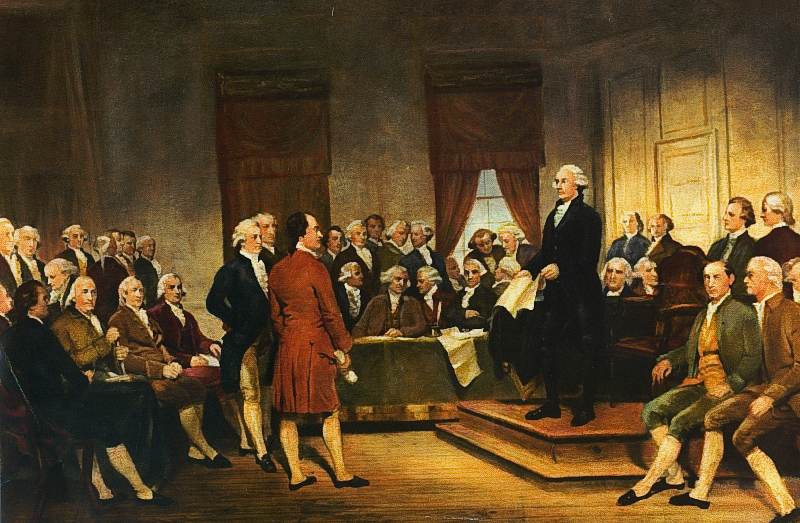Contemporary Puritans

Higher education has always been a religious quest.
Harvard’s embattled President, Claudine Gay, is out. What comes next? Don’t count on Harvard, or indeed any other prominent college or university, to turn away from the faux-moral framework of identity politics. Identity politics provides its practitioners a framework with which to establish who is pure and who is not, who is saved and who is irredeemably damned—and more importantly, what identity group you must fawn over in order to have your own group curse covered and hidden from view. This framework now prevails throughout higher education, and indeed throughout America.
The seeds of this movement were planted long ago, but its blooming flower bears only a superficial resemblance to the seed. Progressivism was once the seed. The term is still in use on the Left; but the flower of progressivism today is identity politics. It needs to be identified as such. Affirmative action, too, was once the seed. The term is still in use on the Left; but the flower of affirmative action is more appropriately named spiritual eugenics, as I have written elsewhere. In this twenty-first century version of eugenics, the impure identity groups—whites, Asians, Jews—must be purged; and the innocent victims must be elevated, whatever their scholarly record, perhaps even to the rank of university president. It is long past time for the spiritual eugenics that is now at the heart of higher education to be identified and repudiated. If left unchecked, it will someday yield real purges, involving bloodshed.
Let us be clear-headed about what our colleges and universities have always been. Almost every institution of higher education in America founded prior to the twentieth century was religious from the outset. Their seed was Christianity. Harvard, Yale, Princeton—all of them were self-consciously Christian. And from that seed grew the flowers, from which other seeds sprang: the social gospel movement of the late nineteenth century; Progressivism in the early twentieth century, which as I indicated above provided the germ from which identity politics grew. All of these movements would have been inconceivable had our colleges and universities not provided the soil for their growth. Not by accident has Harvard been ground zero for the growth of all the quasi-religious “social movements” that have transformed America. From the seed of its Calvinism has come the flower of identity politics. And it is not good.
How might this prodigal errancy from higher education’s core mission be rectified? Some have suggested that “antisemitism” be added to the list of so-called harmful speech. On this recommendation, “racist,” “misogynist,” “homophobic,” “transphobic,” “Islamophobic,” and now “antisemitic” speech will be off limits. One of the great mysteries of mortal life is that when we are ill, we are often repulsed by the cure, and drawn to the poison that has made us ill. This suggestion would be of that sort. Its cure would make us sicker.
Others have suggested that identity politics should be purged from our colleges and universities, so that they may get back to their presumably non-religious mission—say, teaching the liberal arts, or the natural sciences. A pleasant thought. A dreamy constellation of activities for the mind that are at a safe remove from Christianity. What this pleasant picture ignores is that while those benign disciplines were being taught during the twentieth century, the seeds of Christianity flowered within the hallowed halls of our colleges and universities, dominated them, in fact, and gave us generation after generation of quasi-religious seeds and flowers, the latest of which is the ghastly genetic malignancy called identity politics. Higher education in America has always been religious, and appears not to have been only if we ignore the fact that the seeds of Christianity produced flowers and new seeds that looked different from the original but still were—religious.
If this is so, and I think it is, then higher education—and America herself—has two and only two choices: either it recovers the seed of Christianity that gives birth to the subsequent flowers and seeds; or it nourishes the latest generation of them, at once sweet-smelling, like the original, and malignant, unlike the original. To put the relationship between the original and the malignant offspring in the starkest of terms, in the original, the purification of all is made possible by a Divine blood sacrifice; in the malignant offspring, the purification of justified, innocent identity groups is made possible by the spilling of the blood of impure identity groups. There will always be the spilling of blood. Make your choice.
The American Mind presents a range of perspectives. Views are writers’ own and do not necessarily represent those of The Claremont Institute.
The American Mind is a publication of the Claremont Institute, a non-profit 501(c)(3) organization, dedicated to restoring the principles of the American Founding to their rightful, preeminent authority in our national life. Interested in supporting our work? Gifts to the Claremont Institute are tax-deductible.
Root, root, root for the electors. If they don't win it's a shame.
Part I: Unfettered reason cannot conserve anything.






